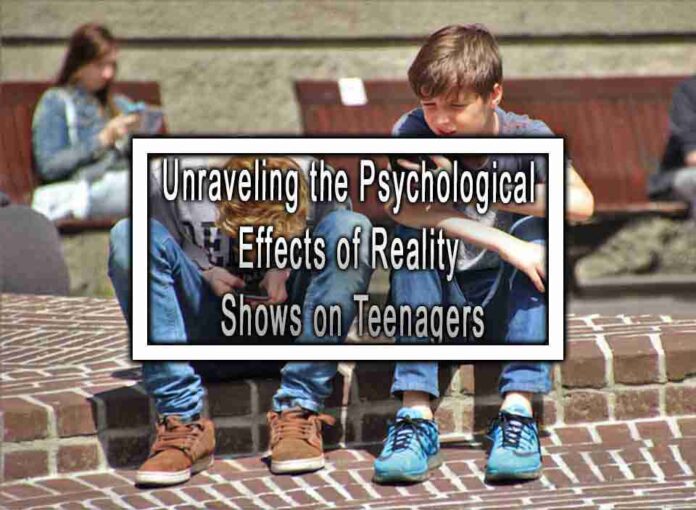Reality shows have become immensely popular in the entertainment industry, and their influence on teenagers is a topic of concern and interest among researchers and parents. While some reality shows may have positive aspects, they can also have psychological effects on teenagers, both positive and negative. Here are some of the key psychological effects of reality shows on teenagers:
1. Social Comparison:
Reality shows often depict participants with desirable physical appearances, lifestyles, and material possessions. Teenagers may compare themselves to these unrealistic standards, leading to feelings of inadequacy, low self-esteem, and body image issues.
2. Unrealistic Expectations:
Teenagers exposed to reality shows may develop unrealistic expectations about relationships, success, and fame. They might believe that quick fame and fortune are easily attainable, leading to disappointment and frustration when faced with real-life challenges and hard work.
3. Emotional Impact:
Reality shows often emphasize drama, conflict, and emotional intensity to attract viewers. Teenagers who watch these shows may experience heightened emotions, stress, and anxiety, especially if they become emotionally invested in the lives of the participants.
4. Aggressive Behavior:
Some reality shows promote conflict and aggressive behavior as entertainment. Exposure to such content may desensitize teenagers to violence and aggression, leading to an increase in aggressive attitudes and behaviors.
5. Peer Pressure:
Teenagers may be influenced by their peers‘ interest in certain reality shows, leading them to watch content that may not align with their values or interests. Peer pressure can affect their media choices and the way they perceive themselves and others.

6. Decreased Empathy:
The focus on competition and drama in reality shows may lead to a reduced sense of empathy among teenagers, as they may become desensitized to the emotional struggles of others.
7. Perception of Relationships:
Many reality shows portray relationships in sensationalized and dramatic ways. Teenagers who watch these shows may develop skewed perceptions of healthy relationships, leading to unrealistic expectations and behavior in their own relationships.
8. Positive Role Models:
Not all reality shows have negative effects. Some shows promote positive values, talents, and self-improvement, which can serve as motivation and inspiration for teenagers.
Ultimately, teenagers’ exposure to reality shows should be balanced with other forms of entertainment, educational content, and real-life experiences to help them develop a well-rounded perspective and navigate the potential psychological effects.











